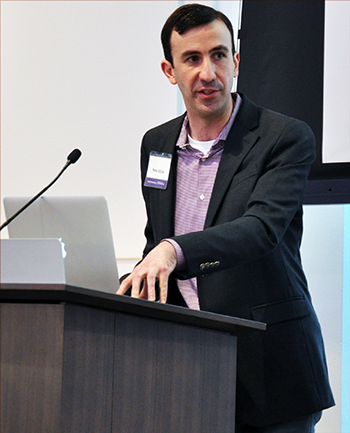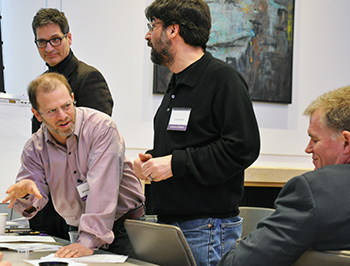Law Professors Teach Engineers about Legal Ambiguities
Engineers learn how to think like lawyers when confronted with legal uncertainties in technology and innovation
Every election cycle tends to be steeped in controversy. But this year’s US presidential election brings a rare quandary. Pundits and scholars are hotly debating whether or not US Senator Ted Cruz is eligible to run for president because he was not born in the United States.

“Lawyers help scientists and engineers with intellectual property and making a company public,” said Julio M. Ottino, dean of Northwestern Engineering. “But there’s so much more than that. Scientists and engineers often chart new territory. In many areas, technology is ahead of the law, so we can’t always see the consequences.”
“It’s important for scientists and engineers to have a basic understanding of the legal and regulatory environments in which their innovations will be realized,” said Daniel B. Rodriguez, dean of the Northwestern Pritzker School of Law. “This was a terrific program and is an excellent example of the types of law and technology innovations we are implementing.”
The event, which featured faculty teaching faculty, was a first of its kind for Northwestern Engineering. Pritzker School of Law presenters included professors David Dana, Peter DiCola, Laura Pedraza-Fariña, and David Schwartz.
When looking at an ambiguous argument, lawyers use five basic tools. They examine the plain meaning of the law, the original meaning, the purpose and policy behind the text, the institutional context, and precedents. To demonstrate these tools, Dana and Pedraza-Fariña argued opposite sides of issues surrounding Ted Cruz’s citizenship.

“‘Allegiant’ has a broader meaning,” Pedraza-Fariña countered. “Birth place is certainly a criterion for allegiance. Cruz might have emotional ties to Canada, making it harder to cast a vote for the United States.”
The four presenters then discussed ambiguities in existing technology scenarios, including the constitutional soundness of the Clean Power Plan, legal loopholes in non-compete agreements, and secondary liabilities in copyright law.
After the presentations, Northwestern Engineering faculty members divided into two groups to discuss legal arguments for whether or not a new pizza topper infringed upon an existing US patent for a similar product. Representatives from both sides then presented their cases.
“It’s safe to assume that your perspective of law might have changed,” Ottino said. “We hope this is the first in a series of events that explores the intersection between law and engineering.”